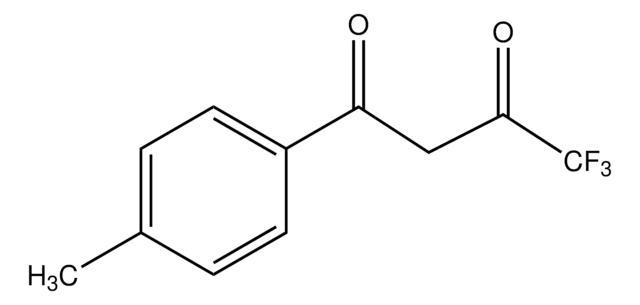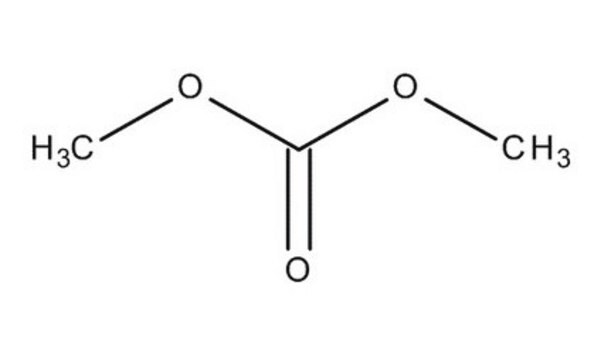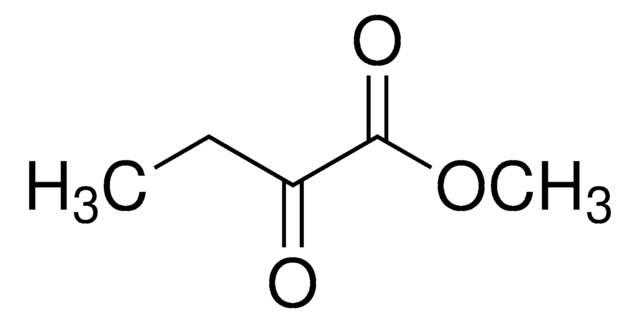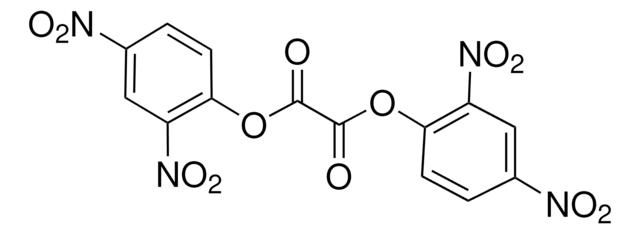135623
Dimethyl oxalate
ReagentPlus®, 99%
Synonym(s):
Methyl oxalate
About This Item
Recommended Products
product line
ReagentPlus®
Assay
99%
form
powder
refractive index
n20/D 1.39 (lit.)
bp
163.5 °C (lit.)
mp
50-54 °C (lit.)
solubility
ethanol: soluble 50 mg/mL, clear to very slightly hazy, colorless
density
1.148 g/mL at 25 °C (lit.)
SMILES string
COC(=O)C(=O)OC
InChI
1S/C4H6O4/c1-7-3(5)4(6)8-2/h1-2H3
InChI key
LOMVENUNSWAXEN-UHFFFAOYSA-N
Looking for similar products? Visit Product Comparison Guide
General description
Application
Legal Information
Signal Word
Danger
Hazard Statements
Precautionary Statements
Hazard Classifications
Acute Tox. 4 Oral - Eye Dam. 1 - Skin Corr. 1B
Storage Class Code
8A - Combustible corrosive hazardous materials
WGK
WGK 3
Flash Point(F)
167.0 °F - closed cup
Flash Point(C)
75 °C - closed cup
Personal Protective Equipment
Certificates of Analysis (COA)
Search for Certificates of Analysis (COA) by entering the products Lot/Batch Number. Lot and Batch Numbers can be found on a product’s label following the words ‘Lot’ or ‘Batch’.
Already Own This Product?
Find documentation for the products that you have recently purchased in the Document Library.
Customers Also Viewed
Our team of scientists has experience in all areas of research including Life Science, Material Science, Chemical Synthesis, Chromatography, Analytical and many others.
Contact Technical Service











